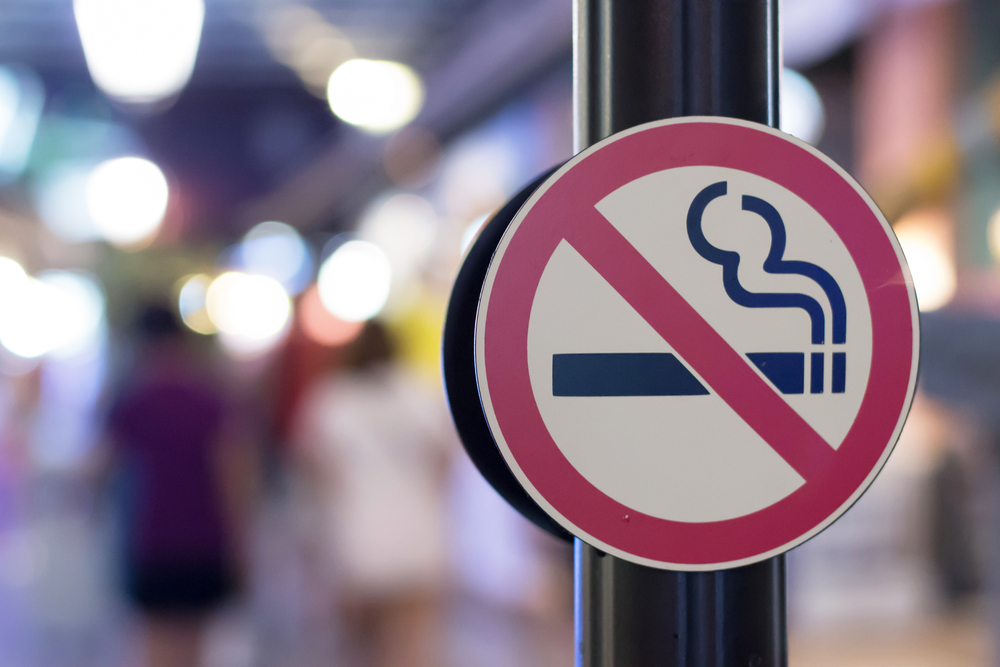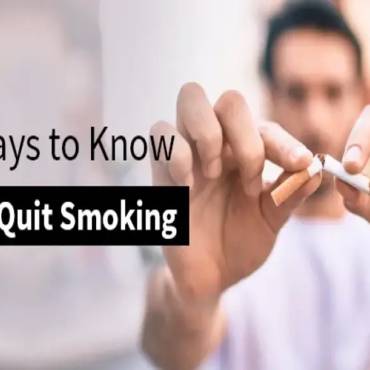Quitting smoking can be a tough task but it is not impossible. It’s not only about breaking a powerful physical dependence on an incredibly addictive substance but also about drastically changing one’s lifestyle, habits and covering up methods. It is, however, undoubtedly the most important step that smokers can take to improve the length and quality of their lives.
Mere knowing that cigarettes are harmful is rarely motivation enough to quit smoking. Smoking is a powerful addiction, and breaking that addiction requires amazing willpower.

The Effects of Smoking
Smoking doesn’t just harm the lungs of a smoker, and cancer isn’t the only threat to a smoker’s health. Inhaling tobacco smoke can lead to damage the most of body’s organs and systems. Below is the comprehensive list of smoking effects on your body:
Also Read: Learn to prevent premature ejaculation
- Causes Cancer– Smoking is the leading preventable cause of cancer. 4 out of 5 cases of lung cancer are linked with smoking cigarettes.
- Affects the circulatory system– Cigarette smoke damages the heart and blood cells.
- Affects the immune system– It damages your lungs and irritates your windpipe and voice box. It also worsens asthma.
- Affect the musculoskeletal system– It decreases bone density byincreasing the risk of osteoporosis – a condition that weakens the bones and makes them more susceptible to trauma.
- Affects your vision– Smokers are up to four times more likely to go blind in old age.
- Affects the sexual organs– For men, smoking increases the risk of low sperm count and a higher percentage of deformed sperm, genetic damage to sperm and impotence caused by the decreased circulation of blood.
For women, smoking causes a decrease in fertility, irregularities of the menstrual cycle and an earlier menopause.
- Affects Diabetes– Smoking increases your chances of developing type 2 diabetes by 30-40%. The more cigarettes you smoke, the higher the chance of developing diabetes becomes. Moreover, it can make any type of diabetes more difficult to compete with. Smokers are more likely to have trouble with insulin doses.
- Harmful during pregnancy– It can be harmful to the unborn baby. Smoking drastically increases the risk of miscarriages and stillbirths and also increases the risk of a premature birth.
Reasons for Quitting
Motivation is an essential requirement to quit smoking tobacco. As the challenge of quitting initiates, you need to keep reminding yourself that why you’re doing it. To help you identify the reasons that speak to you the most, here is the list complied:
- Improved Health– Chances of getting cancer will drastically decrease and life expectancy can be increased by 10 years. You won’t get sick as often since your immune system will no longer be suppressed by tobacco, bones will get stronger and denser, you will sleep better and have more energy during the day.
- Better Appearance– You will look younger, and your skin will be healthier and tired baggy eyes will disappear. Even the skin’s aging process will slow down significantly.
- Healthy Lifestyle– You will savea lot of money that you can spend on the things you love doing. Also, you will be more productive, since you will no longer be a slave to the urge to smoke.
Methods For Quitting
The thought of quitting smoking is a test of willpower. To test the willpower does not mean to deprive yourself of external tools. Rather, sometimes it refers to do what all it requires to achieve a task. Some of the ways to quit smoking includes:
- Cold Turkey– Approximately 90% of smokers tries to quit, wish to do so without the aid of nicotine replacement therapy or other medication. It is also the fastest method and hence, advised for people who wants to quit as early as possible due to serious medical issues.
- Drugs And Medications– Nicotine replacement therapies provide a safer alternative instead of smoking tobacco cigarettes to individuals suffering from nicotine addiction. Nicotine replacement therapies can take the form of nicotine gum, patches, inhalers or nasal sprays.
- Non-nicotine Smoking Cessation Medication – Certain prescribed medicines to quit smoking can be used to aid in case of strong urge. Some of them can even be used simultaneously with NRT in so that it enhances the success rates. These medications do not contain nicotine, are non-habit-forming.
- Electric Cigarettes– It can be used to quit smoking. Some brands offer e-liquids of varying nicotine content that can be useful in gradually decreasing your nicotine intake. E-cigarettes simply use a heating coil, so that it can vaporize the e-liquid.
- Cognitive behavioral therapy– It is a short-term therapy that works on particular problems in your life. It is used to help quit smoking by modifying the thought patterns that cause the smoker experiencing cigarette cravings and teaching new methods to combat with stress or anxiety. It has been proven to be successful, especially when combined with smoking cessation medication.
Also Read: What to eat during pregnancy
After you quit smoking, almost all the physical withdrawal symptoms will be resolved after 2-3 weeks. However, smoking causes crucial and majorly irreversible changes to your brain chemistry. Cigarette cravings can even disturb you months or even years after quitting smoking. That’s why it’s crucial to stay motivated, use the coping strategies developed in the first few weeks of quitting and think about the benefits you will be going to get afterward.



